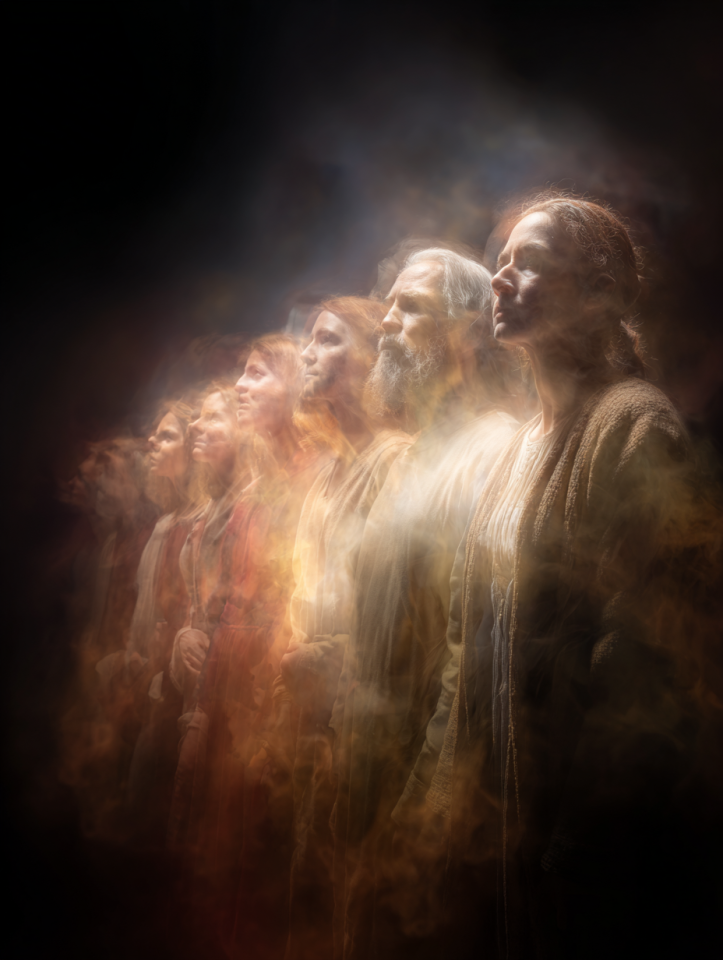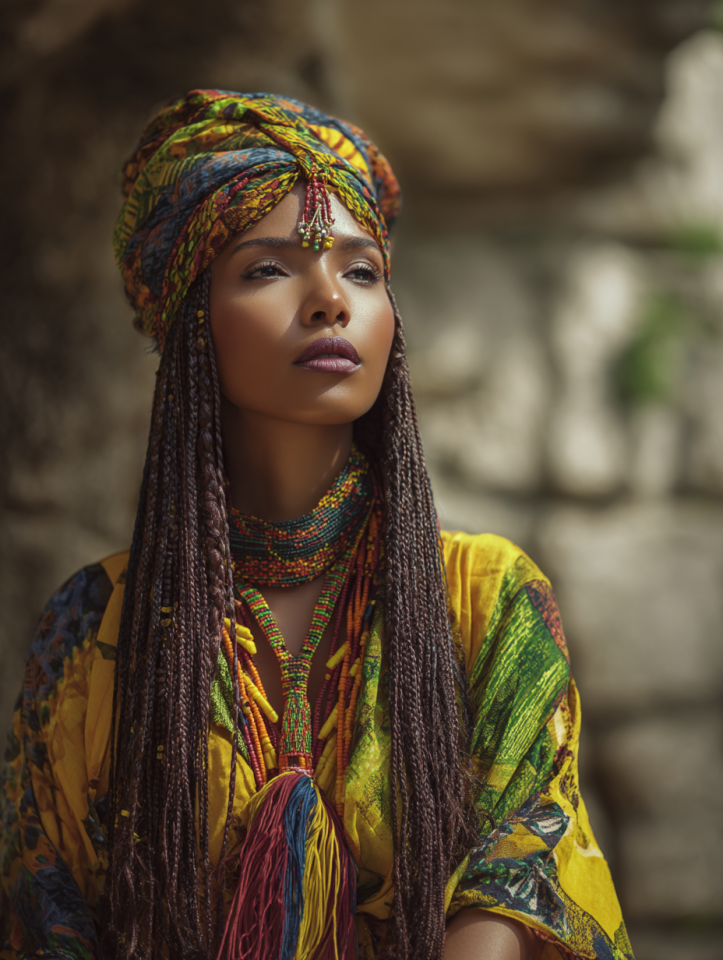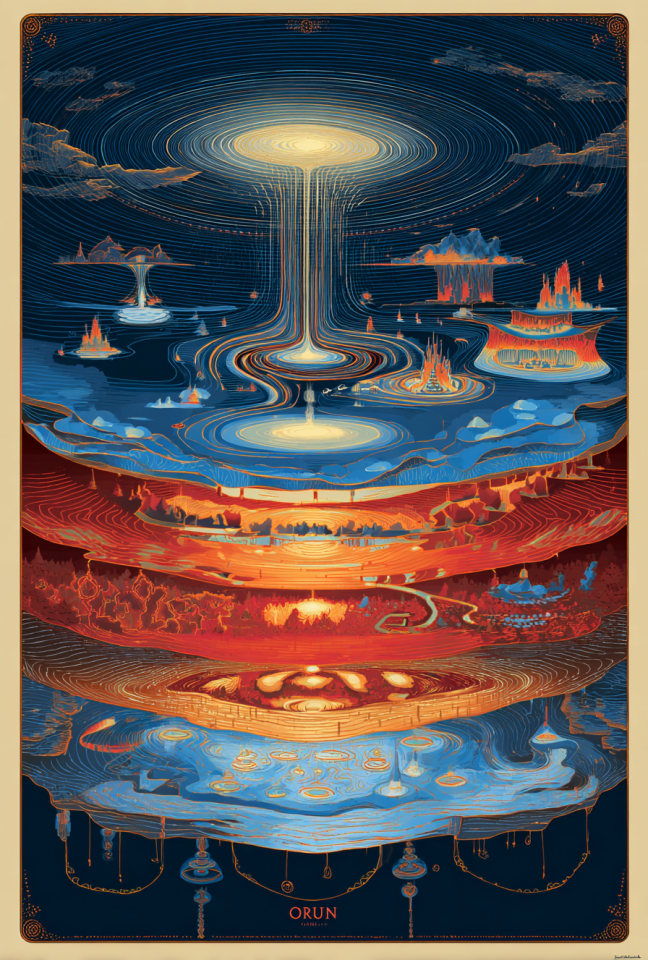Orun is the vast, radiant vault of divine origin — the realm of àṣẹ destiny, and ancestral intelligence. It is not simply “the heavens,” but a layered spiritual cosmos structured by harmony and maintained by both divine will and ancestral wisdom. Governed by Olodumare the ultimate and unknowable source, Orun is the place from which life flows and to which spirits return. It is a realm of radiant order — not static, but flowing — where every being, action, and thought is weighed in the context of divine intention. Once accessible through ritual, rhythm, and sacred knowing, Orun now lies sealed behind the Veil, though its hum can still be felt in praise, silence, and storm.
Landscape and Essence
Orun is layered in luminous tiers, each pulsing with a unique rhythm and energy. The uppermost regions shimmer in deep blues and golds, where light has weight and time rests in spirals. Lower layers glow with red heat, ancestral fire, and the slow breath of memory. Rivers of clear energy flow between the realms, carrying destiny and song. Palaces of light rise and dissolve in sync with thought. No sun burns here, yet all things are lit from within. The air is heavy with presence — not pressure, but awareness. Sound moves like substance: drums that ripple form, chants that build space, silence that folds inwards. It is not dreamlike — it is precise.
Inhabitants
At the center of Orun is Olodumare the source of all being, from whom all àṣẹ flows. Olodumare does not manifest in form but permeates all — a stillness of boundless power. The Orisha divine intermediaries, dwell in Orun’s mid-layers: deities such as Obatala Oshun Shango Yemoja and Orunmila serve as emissaries of balance, love, justice, and guidance. They do not rule from thrones but from alignment with purpose. Orun is also home to Egungun ancestral spirits of the dead who lived in alignment with cosmic order. These spirits assist the living through dreams, omens, and ritual possession. The unborn — spirits waiting to descend — also dwell here, carried in pools of shimmering energy, waiting for their name to be spoken in the Mortal Realm.
Cultural Significance
Among the Yoruba, Orun is a living truth, not an abstraction. It defines life’s purpose: every soul is born with ori a spiritual head chosen in Orun before incarnation, and must live to fulfill their destiny. Orun is the source of both identity and return. It was accessed through ritual, divination (particularly Ifá ), drumming, and offerings. Temples, family altars, and masked ancestral performances were points of contact. Even in diaspora, the knowledge of Orun persisted — in Santería, Candomblé, Vodun — always changing, never vanishing. Though the gates to Orun have since sealed in the face of disruption and dilution, the realm continues to influence through ancestry, divination, and possession.
Role in the Divine Realm
Orun is the spiritual command center of the Divine Realm — the point from which destiny is sown and memory preserved. It does not engage in warfare or judgment; it coordinates and corrects through rhythm and alignment. Orun ensures that the cycles of life, death, and rebirth remain intact. Other realms may handle trial or paradise — Orun assigns purpose. It is the place where divine power (àṣẹ) flows into form, and where all things are witnessed. It is also a resting place, where ancestors reflect upon their legacies and assist in the unfolding of future harmony.
Interactions with Other Realms
Orun once interacted freely with the Mortal Realm. Sacred forests, rivers, shrines, and groves served as porous edges. Drumming patterns mirrored the rhythms of Orun’s energy layers; masked ceremonies opened channels to the dead and the unborn. But with forced migration, colonial suppression, and modernization, the pathways narrowed. The Veil fell not violently, but unevenly — some cultures preserved more access than others. Now, only Orisha and selected spirit-guides can traverse the layers of Orun. Mortals may still receive glimpses — in dreams, divinations, ancestral visitations — but true passage is rare. And yet, Orun still listens.
















